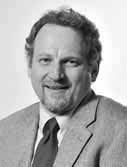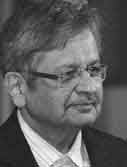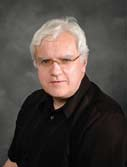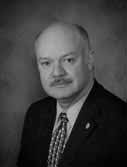ICU Management & Practice, ICU Volume 14 - Issue 1 - Spring 2014

Professor Rinaldo Bellomo, Australia
Rinaldo Bellomo is the Director of Intensive Care Research at Austin Health in Melbourne; Professorial Fellow, Faculty of Medicine, University of Melbourne, Australia; Honorary Professor, Faculty of Medicine, Monash University, Melbourne Australia; Honorary Professorial Fellow, Faculty of Medicine, The University of Sydney, Australia; Honorary Professorial Fellow, The George Institute, Sydney, Australia; Concurrent Professor, Faculty of Medicine, University of Nanjing, China; and Honorary Principal Research Fellow, Howard Florey Institute, University of Melbourne. He is the Founding Chair of the Australian and New Zealand Intensive Care (ANZIC) Society Clinical Trials Group, and is Co-Director of the Australian and New Zealand Intensive Care Research Centre, which has research programmes in traumatic brain injury, sepsis, transfusion, acute lung injury, nutrition and health economics.

Professor John Kellum, USA
John Kellum is Professor and Vice Chair for Research at the Department for Critical Care Medicine; Professor of Medicine, Bioengineering and Clinical & Translational Science; Director, Center for Critical Care Nephrology; Director, Center for Assistance in Research using eRecord (CARe) (www.eresearch.pitt.edu) at the University of Pittsburgh in the United States. His research interests centre on critical care nephrology (including acid-base, and renal replacement therapy), sepsis and multi-organ failure (including blood purification), and clinical epidemiology. He is a founding member and past president of the Acute Dialysis Quality Initiative (www.ADQI.net) and is co-chair of the Kidney Diseases Improving Global Outcomes (KDIGO) clinical practice guideline on acute kidney injury (www.kdigo.org).
An interview with Prof. Kellum, Prof. Claudio Ronco and Prof. Michael Joannidis, “An emerging consensus for acute kidney injury" featured in ICU Management Vol. 12(1) http://bit.ly/1fXxCY2
See also “Biomarkers for acute kidney injury” by Prof. Lakhmir S. Chawla and Prof. Kellum in ICU Management Vol. 13(3) http://bit.ly/1i2OEmk

Dr. Shirish V. Prayag, India
Shirish V. Prayag has practised as a Consultant in Critical Care Medicine in Pune, India since 1983. He established the first Critical Care Unit in Pune in 1985-6. He has been a pioneer in the development of critical care in India and Asia. He is a Founder Executive Committee member of the Indian Society of Critical Care Medicine since its inception in 1993 and Past President. He was the first Consultant from India to be awarded the Fellowship of the American College of Critical Care Medicine (FCCM) and the first consultant from India to be elected on the Executive Council of the World Federation of Societies for Intensive and Critical Care Medicine (2001-2009). He is a member of the WHO project International Partnership for Acute Care Safely (IPACS). He has also been a major contributor to developing and examining diploma and fellowship programmes in critical care in India. His areas of interest are mechanical ventilation, tropical infections, sepsis, shock, and teaching of critical care.

Professor John Marshall, Canada
John Marshall is Director of Research, Critical Care Medicine, St. Michael's Hospital in Toronto and Professor of Surgery at the University of Toronto and Scientist in the Keenan Research Centre of the Li Ka Shing Knowledge Institute of St. Michael's Hospital. He has served as Chair of the Canadian Critical Care Trials Group since 2005, and is Secretary General of the World Federation of Societies of Intensive and Critical Care Medicine.
His research interests include sepsis, innate immunity, critical care trials, host-microbial infections and nosocomial infection. He runs a laboratory funded by the Canadian Institutes of Health Research and the Physicians’ Services Incorporated Foundation that studies the cellular mechanisms underlying prolonged neutrophil survival in trauma and sepsis. He has been the principal investigator of the Appropriate Antimicrobial Therapy In Critical Care (AATICC) trial of empiric antibiotic therapy for suspected ICU-acquired infection as well as a co-investigator on a number of Trials Group programs and a steering committee member for a number of industry-sponsored trials of novel therapies for sepsis.
He is the inaugural chair of the International Forum for Acute Care Trialists (InFACT). He is an executive committee member of the International Severe Acute Respiratory Infections Consortium, and has previously served as president of the Surgical Infection Society and chair of the International Sepsis Forum. He is a Scientific Advisor for the International Symposium on Intensive Care and Emergency Medicine.



Professor Gordon Rubenfeld, Canada
Gordon Rubenfeld is Chief of the Trauma, Emergency & Critical Care Program at Sunnybrook Health Sciences Centre and Professor of Medicine at the University of Toronto, Canada. His research focuses on the clinical epidemiology and outcomes of critical illness syndromes, the transfer of evidence into clinical practice, and end-of-life care issues in the intensive care unit. He has served on numerous advisory panels and consensus groups in critical care, including the American European Consensus Conference on Acute Lung Injury, the working group that developed the Berlin ARDS (acute respiratory distress syndrome) definition and the surviving sepsis guideline committee.
An interview with Prof. Rubenfeld,
“Critical care: the view from Canada” featured in ICU Management, Vol. 13 (3)
http://bit.ly/OWcvMe

Professor Edgar Jimenez, USA
Director, Medical Critical Care and Intermediate Critical Care, Orlando Regional Medical Center, Florida, USA. He is Associate Professor of Medicine, University of Florida, University of Central Florida and Florida State University. He is a Council Member and Past President of the World Federation of Societies of Intensive and Critical Care Medicine. His areas of interest are non-conventional ventilation, sepsis, difficult airway, haemodynamics and perfusion monitoring, mass casualty incidents and disaster preparedness. He was involved in the development of the Emergency Medical System (EMS) in Costa Rica, and worked as Chief Medical Advisor for the US Dept. of State, US Agency for International Development (US AID), Office of Foreign Disaster Assistance (OFDA), where he was also an International consultant on Disasters and Mass Casualty Incidents for the Pan American Health Organization (PAHO) and the Red Cross.
An interview with Prof. Jimenez, “Collective global action in critical care”, featured in ICU Management Vol. 12(4) http://bit.ly/1n61Cmx





